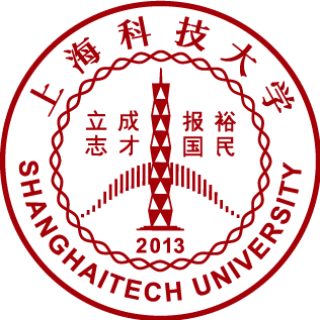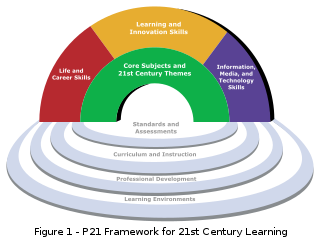
Critical psychology is a perspective on psychology that draws extensively on critical theory. Critical psychology challenges mainstream psychology and attempts to apply psychological understandings in different ways, often looking towards social change as a means of preventing and treating psychopathology.

In their most common sense, the terms thought and thinking refer to conscious cognitive processes that can happen independently of sensory stimulation. Their most paradigmatic forms are judging, reasoning, concept formation, problem solving, and deliberation. But other mental processes, like considering an idea, memory, or imagination, are also often included. These processes can happen internally independent of the sensory organs, unlike perception. But when understood in the widest sense, any mental event may be understood as a form of thinking, including perception and unconscious mental processes. In a slightly different sense, the term thought refers not to the mental processes themselves but to mental states or systems of ideas brought about by these processes.
Critical thinking is the analysis of available facts, evidence, observations, and arguments to form a judgment. The subject is complex; several different definitions exist, which generally include the rational, skeptical, and unbiased analysis or evaluation of factual evidence. Critical thinking is self-directed, self-disciplined, self-monitored, and self-corrective thinking. It presupposes assent to rigorous standards of excellence and mindful command of their use. It entails effective communication and problem-solving abilities as well as a commitment to overcome native egocentrism and sociocentrism.

In psychology, cognitivism is a theoretical framework for understanding the mind that gained credence in the 1950s. The movement was a response to behaviorism, which cognitivists said neglected to explain cognition. Cognitive psychology derived its name from the Latin cognoscere, referring to knowing and information, thus cognitive psychology is an information-processing psychology derived in part from earlier traditions of the investigation of thought and problem solving.

The Joseph L. Rotman School of Management, is the University of Toronto's graduate business school, located in Downtown Toronto. The University of Toronto has been offering undergraduate courses in commerce and management since 1901, but the school was formally established in 1950 as the Institute of Business Administration, which was then changed to the Faculty of Management Studies in 1972 and subsequently shortened to the Faculty of Management in 1986. The school was renamed in 1997 after the late Joseph L. Rotman (1935–2015), its principal benefactor.
ACT-R is a cognitive architecture mainly developed by John Robert Anderson and Christian Lebiere at Carnegie Mellon University. Like any cognitive architecture, ACT-R aims to define the basic and irreducible cognitive and perceptual operations that enable the human mind. In theory, each task that humans can perform should consist of a series of these discrete operations.
Tim van Gelder is the co-founder of Austhink Software, an Australian software development company, and the Managing Director of Austhink Consulting. He was born in Australia, and was educated at the University of Melbourne. He went on to receive his PhD from the University of Pittsburgh (1989). He has held academic positions at Indiana University and the Australian National University before returning to Melbourne as an Australian Research Council QEII Research Fellow. In 1998, he transitioned to part-time academic work allowing him to pursue private training and consulting, and in 2005 began working full-time at Austhink Software. In 2009 he transitioned to Managing Director of Austhink Consulting. He co-leads The SWARM Project at the University of Melbourne.
The Aspen Institute is an international nonprofit organization founded in 1949 as the Aspen Institute for Humanistic Studies. The Institute and its international partners promote the creation of a free, just, and equitable society in a nonpartisan and nonideological setting through seminars, policy programs, conferences, and leadership development initiatives. The institute is headquartered in Washington, D.C., United States, and has campuses in Aspen, Colorado, and near the shores of the Chesapeake Bay at the Wye River in Maryland. It has partner Aspen Institutes in Berlin, Rome, Madrid, Paris, Lyon, Tokyo, New Delhi, Prague, Bucharest, Mexico City, and Kyiv, as well as leadership initiatives in the United States and on the African continent, India, and Central America.
This is an index of education articles.

The Psychonomic Society is one of the primary societies for general scientific experimental psychology in the United States. It is open to international researchers, and almost 40% of members are based outside of North America. Although open to all areas of experimental and cognitive psychology, its members typically study areas such as learning, memory, attention, motivation, perception, categorization, decision making, and psycholinguistics. Its name is taken from the word psychonomics, meaning "the science of the laws of the mind".
The Michael G. Foster School of Business is the business school at the University of Washington in Seattle. It was founded in 1917. The school has more than 50,000 alumni, and is accredited by the Association to Advance Collegiate Schools of Business. The school offers bachelor's, master's, and doctoral degrees. Enrollment each year is about 2,500 students in its undergraduate and graduate programs and more than 1,000 working professionals in its executive education seminars and lifelong learning programs.

King Abdullah University of Science and Technology is a private research university located in Thuwal, Saudi Arabia. Founded in 2009, the university provides research and graduate training programs in English as the official language of instruction.
Stanford Online High School, formerly known as EPGY Online High School, is a private independent school located at Stanford University for academically talented students worldwide. It operates as a six-year school, serving students in grades 7-12. The current Head of School is Tomohiro Hoshi.

The Special Forces Qualification Course (SFQC) or, informally, the Q Course is the initial formal training program for entry into the United States Army Special Forces. Phase I of the Q Course is Special Forces Assessment and Selection (SFAS). Getting "Selected" at SFAS will enable a candidate to continue to the next of the four phases. If a candidate successfully completes all phases they will graduate as a Special Forces qualified soldier and then, generally, be assigned to a 12-men Operational Detachment "A" (ODA), commonly known as an "A team." The length of the Q Course changes depending on the applicant's primary job field within Special Forces and their assigned foreign language capability but will usually last between 56 and 95 weeks.
Leader development is defined as the "expansion of a person's capacity to be effective in leadership roles and processes". These roles and processes are ones that aid in setting direction, creating alignment and maintaining commitment in groups of people sharing common work. Most organizational leadership research and educational programs have focused on developing individual-based knowledge, skills, and abilities associated with formal leadership roles of individuals. Leader development therefore results by investing in human capital.
Bachelor of Management Studies or BMS is an undergraduate program for management studies offered by many universities throughout the world. The course allows you to obtain the knowledge and skills needed to assume management positions in a wide range of organizations. Management studies programmes provide students with a solid foundation in organizational behavior and human resource management while electives in labor-management relations, negotiation, conflict resolution, compensation systems and organizational development allow students to develop deeper knowledge in specific areas of interest. In addition to business management course, it will equip you to understand how organizations work, how they are managed, and how they interact with object oriented programming using c++ and data structures, national and international environments.

Derek Cabrera is a systems theorist and cognitive scientist who applies systems-based concepts to the development of models in human development and learning (education), organizational learning design, management and leadership, organizational change. Models he has formulated include DSRP, MAC, VMCL and NFST. He is also the inventor of MetaMaps and ThinkBlocks.

Wisconsin Center for Education Research (WCER), located in Madison, Wisconsin, is an education research center founded in 1964 as a branch of the School of Education at the University of Wisconsin–Madison. WCER currently has extramural funding of approximately $40 million, and is home to over 500 faculty, staff, graduate and undergraduate students who are engaged in more than 100 research projects that investigate a variety of topics in education.

ShanghaiTech University is a research university in Shanghai, China. Its campus is located in the Zhangjiang Hi-Tech Park in Pudong with an academic focus on STEM research. It has five schools and three research institutes and is backed by the Shanghai Municipal Government and Chinese Academy of Sciences. In 2018, it had 1433 undergraduates, 1788 Master's and PhD students, and 485 faculty members.

21st century skills comprise skills, abilities, and learning dispositions that have been identified as being required for success in 21st century society and workplaces by educators, business leaders, academics, and governmental agencies. This is part of a growing international movement focusing on the skills required for students to master in preparation for success in a rapidly changing, digital society. Many of these skills are also associated with deeper learning, which is based on mastering skills such as analytic reasoning, complex problem solving, and teamwork. These skills differ from traditional academic skills in that they are not primarily content knowledge-based.











